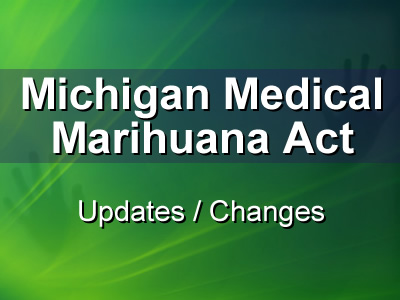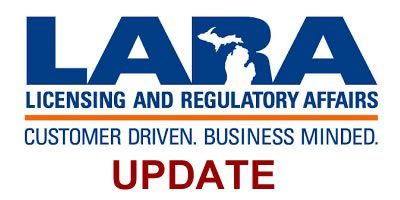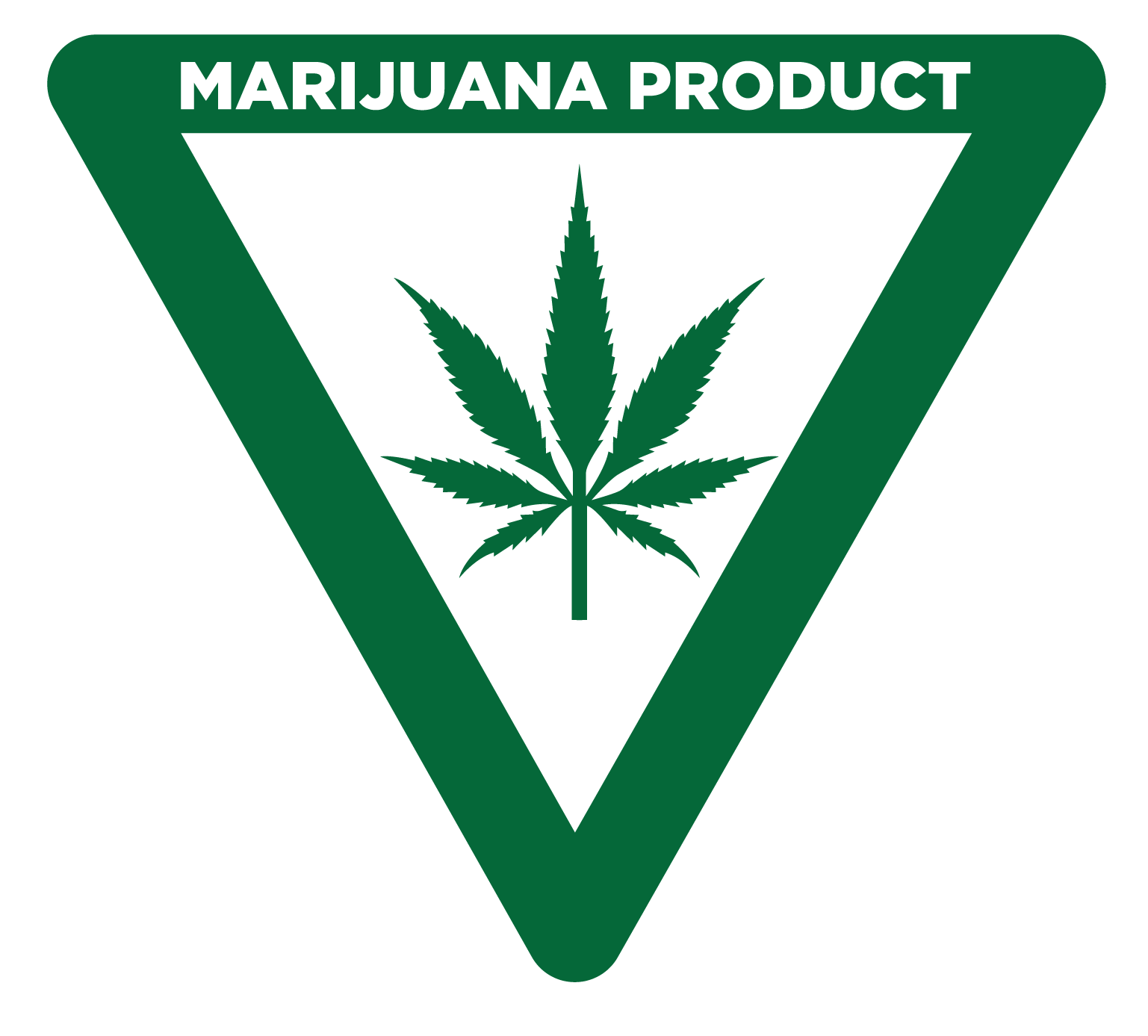
New House Bill-Michigan Medical Marijuana Act-HB5845
2018-HB-5845
Changes MMMA 333.26427 from butane to any chemical extraction.
Separate plant resin from a marihuana plant by CHEMICAL EXTRACTION.

2018-HB-5845
Changes MMMA 333.26427 from butane to any chemical extraction.
Separate plant resin from a marihuana plant by CHEMICAL EXTRACTION.

2018-HB-5844
Contains numerous other amendments
UNLICENSED CHEMICAL EXTRACTION OF RESIN FROM MARIHUANA
UNLICENSED CHEMICAL EXTRACTION OF RESIN FROM MARIHUANA CAUSING SERIOUS INJURY
UNLICENSED CHEMICAL EXTRACTION OF RESIN FROM MARIHUANA CAUSING DEATH
Makes it a 5 year felony to extract marijuana.

2018-HB-5843
Modifies MMFLA:
A PERSON SHALL NOT KNOWINGLY EXTRACT RESIN FROM MARIHUANA BY CHEMICAL EXTRACTION UNLESS THE PERSON HOLDS A PROCESSOR LICENSE.

If you drive down Cedar Street in Lansing, you’ll see green signs on medical marijuana dispensaries that advertise for “MMMP.”
The initials refer to the state’s program for registered medical marijuana patients.
Statewide, there are roughly 218,558 registered medical marijuana patients and 38,107 caregivers, according to the state’s most recently published data. Registered patients increased more than 70% since 2012.
The state initially denies close to 16% of the medical marijuana applications it receives, according to data reported by Michigan Department of Licensing and Regulatory Affairs. Regulators deny some applications for clerical errors, like incomplete paperwork, and prospective patients may re-apply.
This is what Michiganders need to know about becoming a registered medical marijuana patient.
State regulators issue Michigan Medical Marihuana Program cards to registered medical marijuana patients and caregivers.
Registered patients may possess up to 12 marijuana plants and up to 2.5 ounces of “usable marijuana,” meaning the plant’s dried flowers and leaves.
The state also licenses caregivers, who can help procure marijuana for patients. Caregivers may serve up to five patients. State law allows caregivers to possess up to 2.5 ounces of marijuana for each patient. Caregivers may also cultivate up to 12 marijuana plants for each of their registered patients.
The state began certifying patients and caregivers in 2009 after more than 60% of voters approved legalizing medical marijuana in 2008.
Recreational marijuana is still illegal in Michigan, though that could change. Several groups are petitioning to bring recreational legalization before state voters this November.
State law specifically lists eight medical conditions, which can qualify a patient for certification:
State regulators have since added post-traumatic disorder to the list of approved conditions.
Patients also can obtain a medical marijuana card for a “debilitating medical condition” with any of the following symptoms:
A physician’s approval is necessary to obtain a Michigan medical marijuana card.
A medical doctor or a doctor of osteopathic medicine must sign a form certifying that a patient suffers from a debilitating medical condition that could be alleviated with medical cannabis.
It’s not permissible to get physician’s blessing for medical marijuana through the mail or via a Skype appointment. State law requires a “bona fide physician-patient relationship,” which includes an in-person medical evaluation.
2015 audit: One doctor certified 11,800 cannabis patients
The state does not provide a list of physicians who will recommend medical marijuana.
Because marijuana is still illegal under federal law, some physicians are reluctant to provide medical marijuana certifications, said Kevin McFatridge a spokesman for the Michigan State Medical Society, a professional association.
The U.S. Food and Drug Administration has not broadly approved marijuana for medical use, although the FDA has approved drugs that either contain cannabis or mimic cannabis compounds.
Some doctors are reluctant to recommend medical marijuana, McFatridge said, because there are insufficient studies about cannabis dosage and the way the drug could interact with other medications.
Physicians with McLaren Health System do not provide medical marijuana certifications.
“There are legal drugs that may work just as well in specific instances, this is why it is important to work closely with your physician to create a personalized treatment plan,” said Dr. Brad Ropp of McLaren Medical Group.
Michael Komorn, an attorney and president of the Michigan Medical Marijuana Association, an advocacy group, said insurance companies often discourage physicians from providing medical marijuana certifications. Komorn, argues, however, that fears about the risks of recommending medical marijuana are unfounded.
“More doctors should come on board, if they’re keeping with the Hippocratic oath of ‘do no harm,” Komorn said. “If you prescribe opioid pills to a patient, you don’t know if they’re going to take more than prescribed and overdose. When you look at cannabis as an alternative to pain management, for example, it’s much safer.”
It costs $60 to apply for an adult patient card, which must be renewed after two years. There’s an additional $25 fee to register a caregiver.
Application materials, including proof of Michigan residency, should be mailed to the Michigan Medical Marihuana Program, PO Box 30083, Lansing, Mich. 48903.
State regulators will either issue a medical marijuana card or a denial letter within 20 business days of receiving an application. Applicants can contact the state’s Medical Marihuana Program 517-284-6400 if they do not hear back within five weeks of mailing an application.
Contact Sarah Lehr at (517) 377-1056 or slehr@lsj.com. Follow her on Twitter @SarahGLehr.
More:

On March 14, 2018 The Dept. of Licensing and Regulatory Affairs (LARA) has posted a revised technical bulletin for clarification on testing and accreditation standards.
The bulletin refers to Safety Compliance FacilitiesTesting, The purpose of the bulletin is intended to address requests for clarification on Rule31(6) and (7) of the Emergency Rules filed on December 4, 2017.
This bulletin can be viewed at the following links

Michael Komorn is the leading expert attorney dedicated to the Michigan Medical Marihuana Facilities Licensing Act, the Michigan Medical Marihuana Act and the Marijuana Tracking Act.
Call Komorn Law PLLC today if you are interested in working in or with the Michigan medical marijuana business industry. We offer expert planning and advice for all MMFLA applicants, employees and related services including Certified Public Accountants and financial institutions.
Combined with Komorn Law PLLC’s expert criminal defense services, we can help you maximize profits, minimize risk and liabilities and ensure that you are in compliance with all of the laws, rules and regulations.

Please note that these laws, rules and regulation forms change and are updated regularly. Always get the latest forms directly from LARA at http://www.michigan.gov/bmmr

Administrative Rule 72 says that before a marijuana plant is sold or transferred, a package tag must be affixed to the plant or plant container and enclosed with a tamper proof seal that includes all of the following information:
• Business or trade name, licensee number, and the RFID package tag assigned by the statewide monitoring system that is visible.
• Name of the strain.
• Date of harvest, if applicable.
• Seed strain, if applicable.
• Universal symbol, if applicable.
Administrative Rule 73 says before a marijuana product is sold or transferred to or by a provisioning center, the container, bag, or product holding the marijuana product must have a label and be sealed with all of the following information:
• The name of the licensee and the license number of the producer, including business or trade name, and tag or source number as assigned by the statewide monitoring system.
• The name of the licensee and the license number including business or trade name of licensee that packaged the product, if different from the processor of the marijuana product.
• The unique identification number for the package or the harvest, if applicable.
• Date of harvest, if applicable.
• Name of strain, if applicable.
• Net weight in United States customary and metric units.
• Concentration of THC and cannabidiol (CBD).
• Activation time expressed in words or through a pictogram.
• Name of the safety compliance facility that performed any test, any associated test batch number, and any test analysis date.
• The universal symbol for marijuana product published on the department’s
website.
• A warning that states all the following: “For use by registered qualifying patients
only. Keep out of reach of children. It is illegal to drive a motor vehicle while
under the influence of marijuana. National Poison Control Center 1-800-222-1222.
Licensees may continue to use any remaining versions of the previous Universal Symbol until they are completely used up.
Licensees are also permitted to choose which Universal Symbol version to use on a marijuana product until any remaining
versions of the previous Universal Symbol until they are completely used up.
MMFLA Licensing Board meeting 4-19-2018
MMLB Medical Marihuana Licensing Board Meeting 10-29-2018 part 1
MMLB Medical Marihuana Licensing Board Meeting 10-29-2018 part 2
Michigan Medical Marihuana Licensing Board Meeting 11-08-2018
Michigan Medical Marihuana Licensing Board Meeting 12-07-2018
LARA LIVE, BMMR video chat with BMMR Director Andrew Brisbo on CBD oil and Industrial Hemp or Medical Marijuana.
December 21, 2018 – Unapproved
Also look for all MMMA reports here:
MMMA all government statistics, reports, grants and analysis